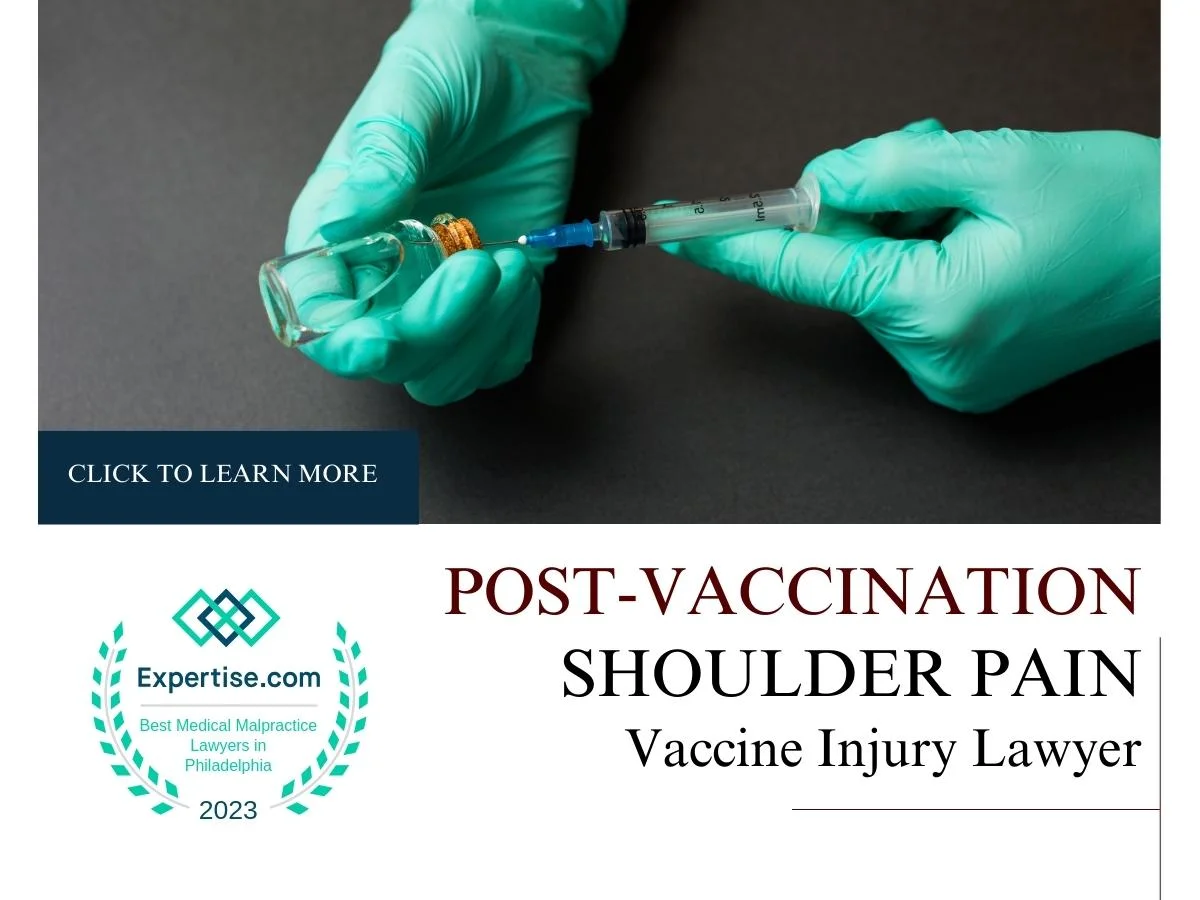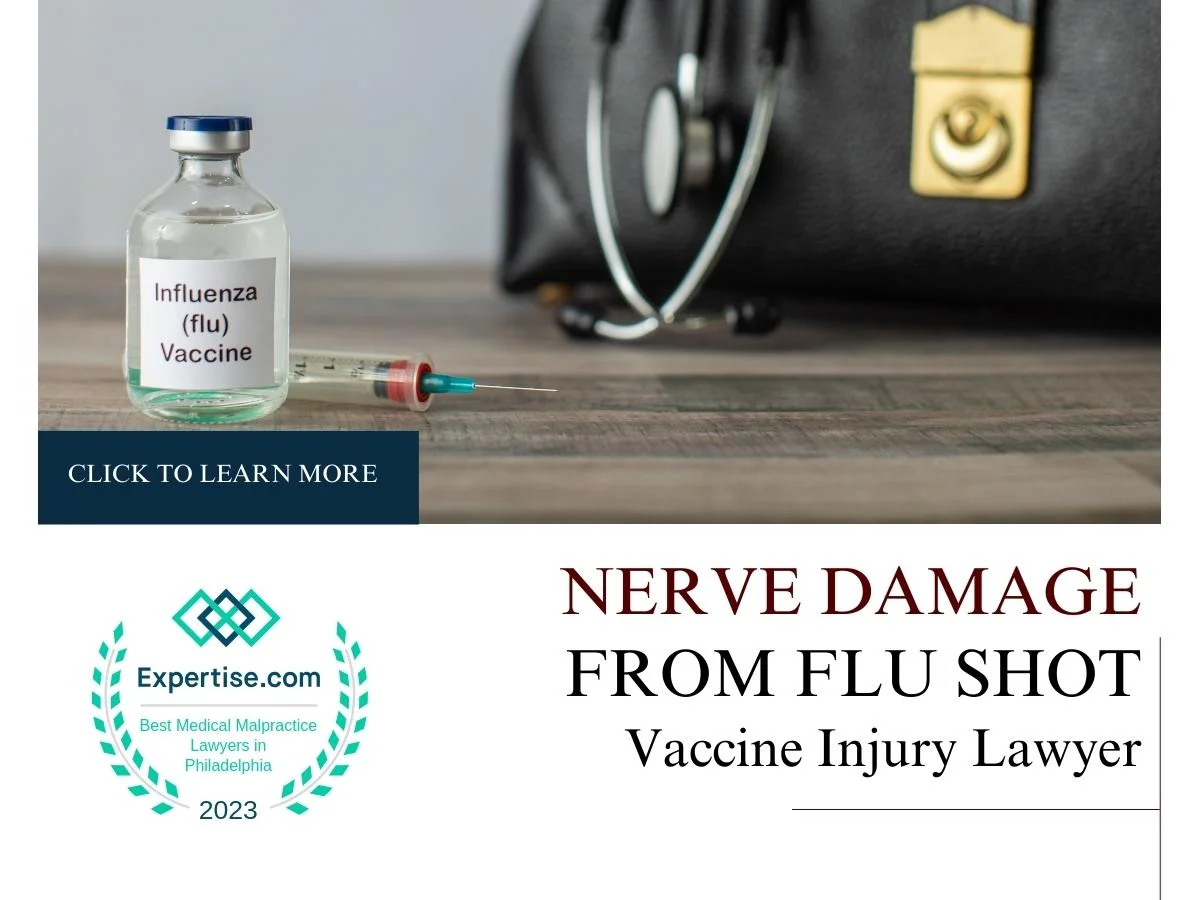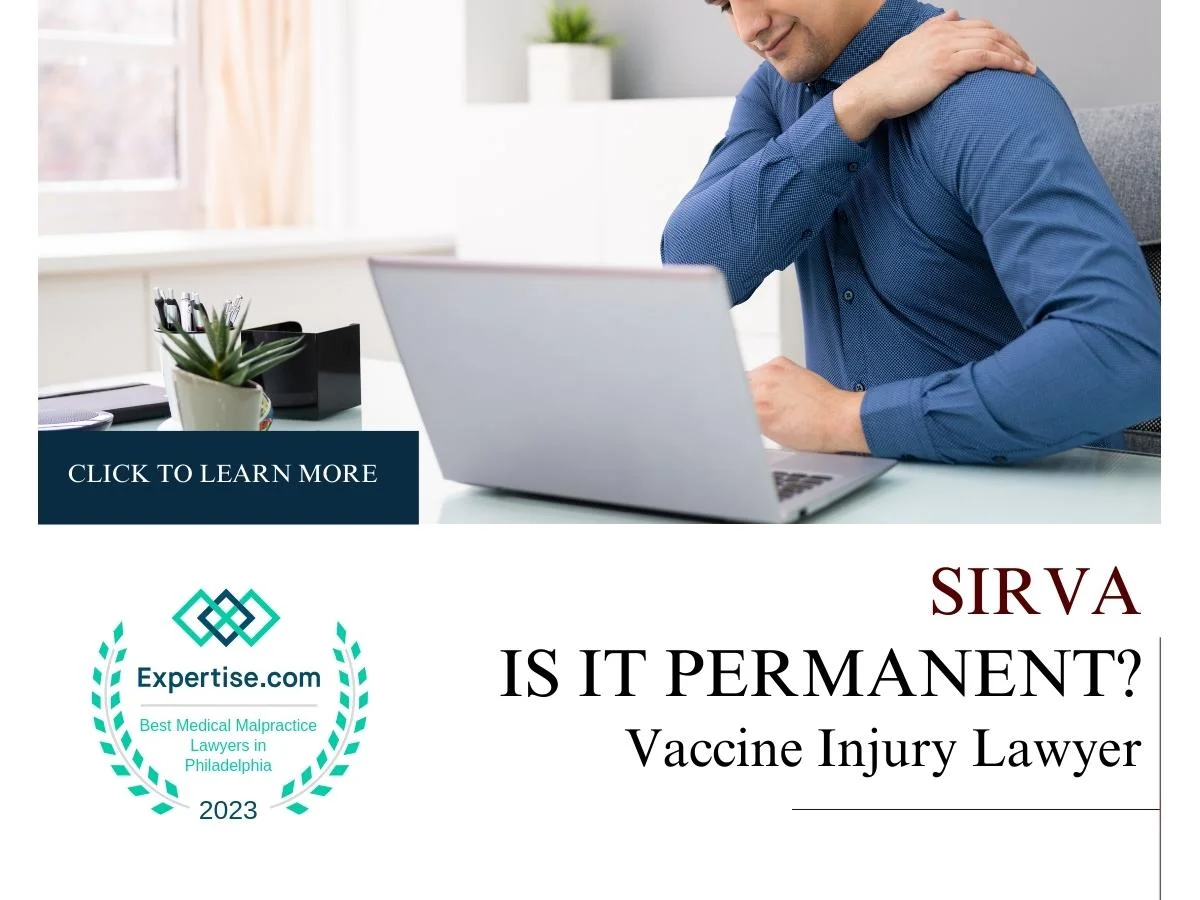Shoulder Pain After Flu Shot - Legal Help Available
Suppose you have recently received a flu shot and are experiencing tingling sensations in your arm and hand. In that case, you may be concerned about...
4 min read
Vaccine Injury Law Resources / SIRVA / Is SIRVA a Permanent Injury? Understanding Long-Term Effects
 Leigh Finfer
:
Jan 18, 2023 8:21:22 AM
Leigh Finfer
:
Jan 18, 2023 8:21:22 AM
SIRVA (Shoulder Injury Related to Vaccine Administration) is a condition that, while rare, causes trauma and inconvenience to those affected. SIRVA occurs when a vaccine is improperly administered into the shoulder joint rather than the deltoid muscle.
What is SIRVA?
The impact of SIRVA extends beyond physical discomfort, often interfering with daily activities and quality of life. Understanding the potential risks and seeking prompt treatment are important steps in minimizing the effects of this unpleasant injury. Some people worry about the permanent effects of SIRVA, fearing that the injury may have lasting repercussions. Here, we will break down the potential long-term consequences of SIRVA and how much you should be concerned.
SIRVA stands for "Shoulder Injury Related to Vaccine Administration." It refers to a specific type of injury that can occur when a vaccine is improperly administered, typically damaging the shoulder joint and surrounding tissues. Following COVID 19, vaccinations have been at the center of many debates and discussions and inevitably greater awareness has ended in more vaccinations. As much as leading authorities endorse people having vaccinations, there is an inevitable rise in unwanted vaccine injuries. A study done in the Netherlands found that SIRVA is estimated at 3% in the adult working population.
SIRVA is recognized as a rare but significant adverse reaction to vaccinations and is listed in the Vaccine Injury Compensation Program as a vaccine injury.
Shoulder Injury Related to Vaccine Administration (SIRVA) has a range of symptoms, including:
The duration of SIRVA varies. While some may experience improvement within weeks, others might face chronic pain or stiffness lasting months or even years.
There is no clear and consistent answer to this. The permanence of SIRVA largely depends on several factors, including:
Few SIRVA cases resolve of their own accord. Timely intervention and relevant treatment options help reduce the likelihood of continued severe symptoms. While many cases improve with proper care, some individuals experience long-term effects that can significantly impact their lives.
If SIRVA is left untreated or if there is a severe reaction, it can result in several serious long-term injuries and complications that can significantly impact everyday tasks and overall quality of life. Here are some of the potential complications and the specific tasks they can affect:
Some of these long term effects may not appear to be too concerning but over time they wear you down. Quality of life is not something to underestimate and this should never be compromised due to poor administration technique by a trained professional.
Speak with one of our specialized SIRVA vaccine attorneys.
Unfortunately, in most cases, SIRVA doesn't go away independently. The best action is to seek medical attention as soon as possible to determine appropriate treatment and manage your symptoms. Without proper diagnosis and treatment, you may experience shoulder pain and other symptoms associated with the condition.
Permanent SIRVA injuries can lead to significant medical expenses, ongoing therapy costs, and loss of income due to reduced work capability. The chronic pain and disability associated with SIRVA can also impact daily life and mental health, leading to a decreased quality of life.
Medical Expenses:
You may need to spend $150 per session on physical therapy twice a week for six months (26 weeks). This amounts to 52 sessions at $150 each, totaling $7,800. Additionally, you spend $100 per month on medications, adding up to $600 for six months.
Total Cost: $8,400.
Assistive Devices:
An ergonomic chair can cost up to $300 and adaptive kitchen tools are $200. A shoulder brace costing $150.
Total Cost: $650.
Loss of Income:
Someone who previously earned $4,000 per month as a construction worker, now earns $2,500 per month in a desk job. Over a year, this results in a loss of $1,500 per month, or $18,000 annually.
Annual Income Loss: $18,000.
Home Modifications:
More severe injuries may require the installation of grab bars ($100 each) in the bathroom and kitchen (4 bars total) and a bathroom remodel to be more accessible, costing $5,000.
Total Cost: $5,400.
Reduced Independence:
Limited mobility requires a home health aide for assistance with daily activities, costing approximately $20 per hour for 4 hours a day, 5 days a week.
Monthly Cost: $1,600.
Annual Cost: $19,200.
Inability to Perform Hobbies or Sports:
Active individuals who used to spend $500 annually on swimming memberships and competition fees, can no longer participate in these activities, losing both the financial investment and the personal enjoyment.
Impact on Social Life:
Socialites now avoid social activities that involve physical exertion, leading to a potential loss of friends and experience during social outings and events.
Emotional and Psychological Stress:
The fallout of this all means attending weekly counseling sessions at $100 per session to cope with anxiety and depression caused by his chronic pain.
Monthly Cost: $400.
Annual Cost: $4,800.
If you suffer from SIRVA permanent nerve damage or other long-term effects, you are eligible for compensation through the Vaccine Injury Compensation Program (VICP). Consulting with an experienced vaccine injury lawyer will help you handle the claims process and secure the compensation you deserve.
Read more about how long do SIRVA cases take to settle.
At My Vaccine Lawyer, we specialize in handling SIRVA cases and have had some excellent compensation results. Our experienced attorneys can guide you through the legal process, helping you file a claim with the VICP and making sure that you get the compensation needed for medical treatments and other expenses. Don't let SIRVA permanent injury disrupt your life—contact us today for a free consultation.
Leigh A. Finfer is a vaccine and personal injury attorney at Muller Brazil and My Vaccine Lawyer. Mrs. Finfer has been with the firm since June 2018 and her practice includes representing vaccine injury victims, personal injury victims, and those who suffer injuries as a result of unsafe drugs and medical devices.

Suppose you have recently received a flu shot and are experiencing tingling sensations in your arm and hand. In that case, you may be concerned about...

Most autoimmune conditions aren’t on the Vaccine Injury Table, but Guillain-Barré, ITP, and others may still qualify for compensation.

Soreness at the injection site is expected after a flu shot. But when that discomfort turns into numbness, tingling, or muscle weakness that doesn’t...
